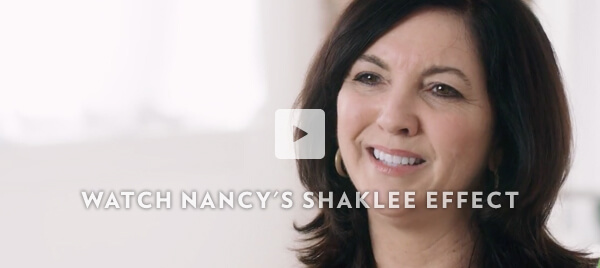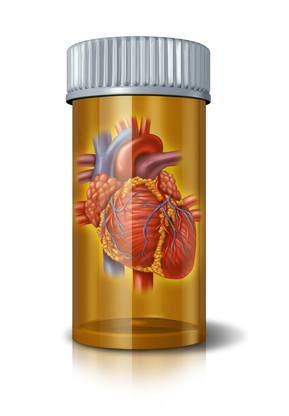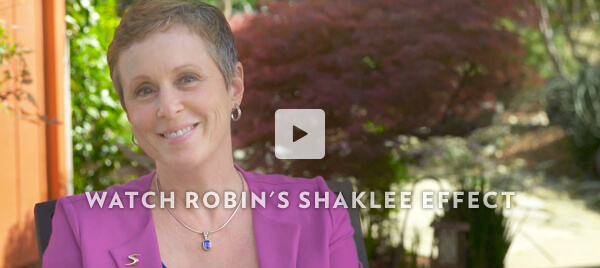There I was straight out of
college starting my career in retail
management. There was nothing
standing in my way of success, and
nothing could slow me down...or so
I thought! Then, the pain began --
doctor visits and pain meds that
didn't touch my pain, and finally the
diagnosis!
The doctor suspected that I
had lupus. She said that while it
was not a "death sentence" it was
an extremely volatile disease that
could lead to disability. I tried to
stifle the lump in my throat from
emerging and a few tears slid down
my face. How could this happen?! I
was only 24 years old! There were
no answers to be found. Well fast
forward through about a year of
appoint-ments, various
medications, and still no answers.
To my surprise, I found myself
pregnant. I quickly found that work
without pain meds was nothing
short of impossible for me. After
stopping all my medications, I
lasted a week or two at most before
I had to resign from work.
The doctor flat out told me it
could KILL me to carry a child.
And with the loss of my job came
the onslaught of all these emotions
and worries. I worried if the baby
would be okay, if my hubby would
get sick of taking care of me and I
was overwhelmed by grief over the
loss of the future I had envisioned
for myself. Well, the doctor was wrong. Not
only did I survive the long months
of pregnancy, but I gave birth to a
perfectly beautiful baby girl. And
when she was born so was a new
hope inside of me. I knew I had to
fight this disease to the best of my
ability so that I could be the mom
that she deserved! Six weeks later, I
was settling quite nicely into life
with my new soul mate. And, BAM!
My lupus was back with a
vengeance, and I quickly spiraled
into the worst lupus flare of my life.
For me this meant spending days
doing nothing but laying in bed,
sleeping, eating, feeding my baby,
and taking quick trips to the
bathroom. I was miserable!
Back to the doctor ... more tests.
The diagnosis; lupus and
fibromyalgia. More medication
meant no more breastfeeding -
something that I had come to truly
love sharing with my sweet baby
girl. We transitioned to bottles and I
began taking steroids, Plaquenil,
and a pain medication in addition
to many other pills. I struggled
everyday to endure the emotional
strife in addition to all the pain,
fatigue, insomnia, muscle spasms,
nausea, widespread hives, and
mental fog that took over my life.
I started seeking additional help
to lessen the symptoms ... chronic
pain counseling, physical therapy,
new drugs, changes to my diet and
home environment. In the process
of finding a laundry product that
would stop exacer-bating my hives,
I discovered that not only did all my
products have nasty, TOXIC
chemicals like formaldehyde in
them, but so did all my baby's
trusted Johnson & Johnson
products!
One day, a Face book friend of
mine unknowingly answered my
prayers when she posted about how
much she loved her all natural
Shaklee brand cleaners. After doing a bit of research, we
decided it was worth a try! Not only
were
the cleaners all natural and
toxin free, but the $30 bottle
(Basic H2) was a good bargain too!
This one bottle could clean
everything in my house, and would
last us a few years!! Within a week
my hives came less and less
frequently. I had spent the last year
and a half itchy every single day! I
was pretty impressed!
NOW ... THE SHOCK OF
MY LIFE!

I was
getting better
at managing
my illness,
but it still
consumed
my life. I was
filing for
permanent
disability,
and I came
to accept
that my
ability would
lessen as my illness progressed.
HOWEVER after hearing great
things about
Vivix (including how
it had helped my friend with
infertility and her husband with hair
loss), I decided to give it a try! A
short time later, I went back to my
rheumatologist to have some more
blood work done and had a new
med prescribed. Afterwards, I
drove home in so much pain! I just
knew these tests would show the
same findings as the tests taken
three months prior -- that I was a
mess! Two weeks later I went back
to review the results. I was happy to
report to the Dr. that the steroids
(the same one I had been
prescribed countless times before)
had worked much better than I had
expected. Within two days I felt like
a completely different person!
When I told my doctor this she
crinkled her face, confused. She
said, "Well, your tests results came
back". I braced myself.
"The tests
show no signs of lupus. You
are in remission”.
This is NOT possible! I had
been feeling better, but that was just
because of the new meds...or so I
thought. This doesn't just happen
so abruptly out of nowhere! I was
shocked!
I began examining every aspect
of my life and the timeline of
changes I had made to my diet,
habits, home, etc. The only factor I
can attribute the sudden change in
my immune system activity was the
Vivix! Once I came to this
realization, I started reading
through comments I found in the
results Google had compiled when
I searched for 'lupus and Vivix'. I
found other people who had had
almost the same experience! I was
amazed to find so many people
healed by this awesome
supplement!
I was so thrilled with the results I
found with Shaklee that I decided to
start my own Shaklee business. I
am so eager to share these
products with others, and I hope by
doing so I can help transform
others' lives as well! I could not be
more thankful to be in remission! I
absolutely would have never
guessed that I would ever live a day
without pain. I definitely would
have never thought that simply
trying a few products would lead
me to recovery so quickly... but here
I am!
So, the real question is... What
can Shaklee do for you? You'll
never know unless you try!
- Trish



 I was
getting better
at managing
my illness,
but it still
consumed
my life. I was
filing for
permanent
disability,
and I came
to accept
that my
ability would
lessen as my illness progressed.
HOWEVER after hearing great
things about Vivix (including how
it had helped my friend with
infertility and her husband with hair
loss), I decided to give it a try! A
short time later, I went back to my
rheumatologist to have some more
blood work done and had a new
med prescribed. Afterwards, I
drove home in so much pain! I just
knew these tests would show the
same findings as the tests taken
three months prior -- that I was a
mess! Two weeks later I went back
to review the results. I was happy to
report to the Dr. that the steroids
(the same one I had been
prescribed countless times before)
had worked much better than I had
expected. Within two days I felt like
a completely different person!
When I told my doctor this she
crinkled her face, confused. She
said, "Well, your tests results came
back". I braced myself. "The tests
show no signs of lupus. You
are in remission”.
I was
getting better
at managing
my illness,
but it still
consumed
my life. I was
filing for
permanent
disability,
and I came
to accept
that my
ability would
lessen as my illness progressed.
HOWEVER after hearing great
things about Vivix (including how
it had helped my friend with
infertility and her husband with hair
loss), I decided to give it a try! A
short time later, I went back to my
rheumatologist to have some more
blood work done and had a new
med prescribed. Afterwards, I
drove home in so much pain! I just
knew these tests would show the
same findings as the tests taken
three months prior -- that I was a
mess! Two weeks later I went back
to review the results. I was happy to
report to the Dr. that the steroids
(the same one I had been
prescribed countless times before)
had worked much better than I had
expected. Within two days I felt like
a completely different person!
When I told my doctor this she
crinkled her face, confused. She
said, "Well, your tests results came
back". I braced myself. "The tests
show no signs of lupus. You
are in remission”.


 "Since my early teens, I have
been an athlete used to training
for hours every day. As an avid
athlete, I bike 200-300 miles per
week during the season, and my
performance depends on quick
recovery after high intensity
workouts.
"Since my early teens, I have
been an athlete used to training
for hours every day. As an avid
athlete, I bike 200-300 miles per
week during the season, and my
performance depends on quick
recovery after high intensity
workouts. According to Dr.
Oz, Dr. Weil, the
Mayo Clinic, and
other leading
authorities,
magnesium
deficiency is the
major hidden
cause of muscle
cramps throughout the entire
body (including leg and foot
cramps), and no prescription
medication can fix it.
According to Dr.
Oz, Dr. Weil, the
Mayo Clinic, and
other leading
authorities,
magnesium
deficiency is the
major hidden
cause of muscle
cramps throughout the entire
body (including leg and foot
cramps), and no prescription
medication can fix it.  They are at it again. The medical profession is telling us
that yet another study shows that statins are safe, so almost everyone should be
taking a statin drug. There is only one problem. That’s not what the study
really showed.
They are at it again. The medical profession is telling us
that yet another study shows that statins are safe, so almost everyone should be
taking a statin drug. There is only one problem. That’s not what the study
really showed.  myelin sheath that coats our neurons. You can think of
myelin as being like the plastic coating on an electrical wire. It is that
plastic coating that allows the electrical current to travel from one end of the
wire to the other without shorting out. Myelin plays essentially the same role
for our neurons.
myelin sheath that coats our neurons. You can think of
myelin as being like the plastic coating on an electrical wire. It is that
plastic coating that allows the electrical current to travel from one end of the
wire to the other without shorting out. Myelin plays essentially the same role
for our neurons.  This study (Strom et al, JAMA Internal Medicine, doi:
10.1001/jamainternmed.2015.2092) differed from previous studies in that:
This study (Strom et al, JAMA Internal Medicine, doi:
10.1001/jamainternmed.2015.2092) differed from previous studies in that:
 The National Heart Lung &
Blood Institute recommends that something called Therapeutic Lifestyle Change or TLC
should always be tried first for patients with elevated cholesterol, and that
statins only be used if the lifestyle approach fails – a message that seems to
have gotten lost in the translation in many doctor’s offices. The TLC
recommendations are:
The National Heart Lung &
Blood Institute recommends that something called Therapeutic Lifestyle Change or TLC
should always be tried first for patients with elevated cholesterol, and that
statins only be used if the lifestyle approach fails – a message that seems to
have gotten lost in the translation in many doctor’s offices. The TLC
recommendations are:  However, just because a
supplement is natural doesn’t necessarily mean that it is either safe or
effective. Red yeast rice is a perfect example. Many people think of red yeast
rice as a natural way to reduce cholesterol levels without side effects. Nothing
could be further from the truth!
However, just because a
supplement is natural doesn’t necessarily mean that it is either safe or
effective. Red yeast rice is a perfect example. Many people think of red yeast
rice as a natural way to reduce cholesterol levels without side effects. Nothing
could be further from the truth! 
